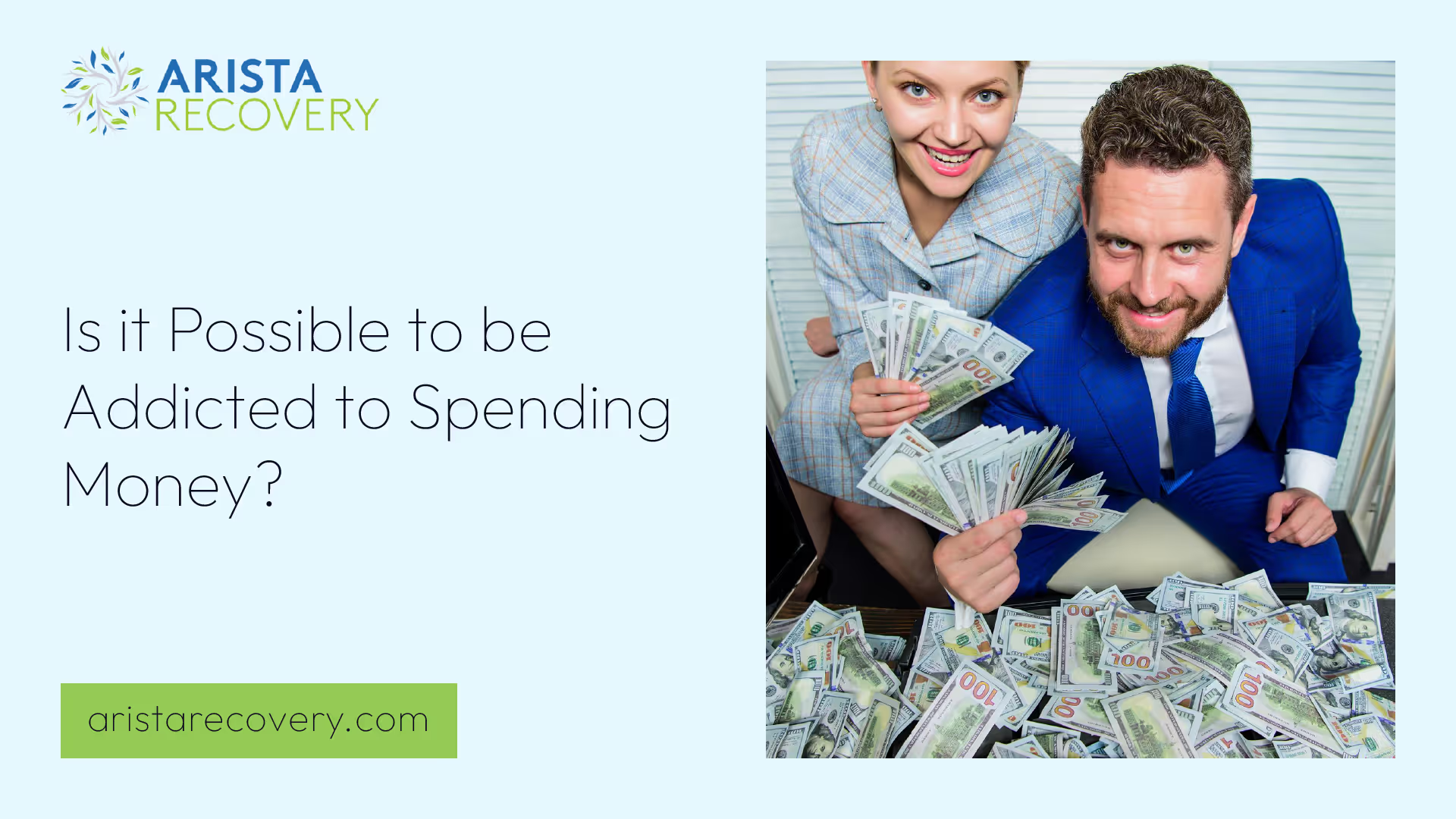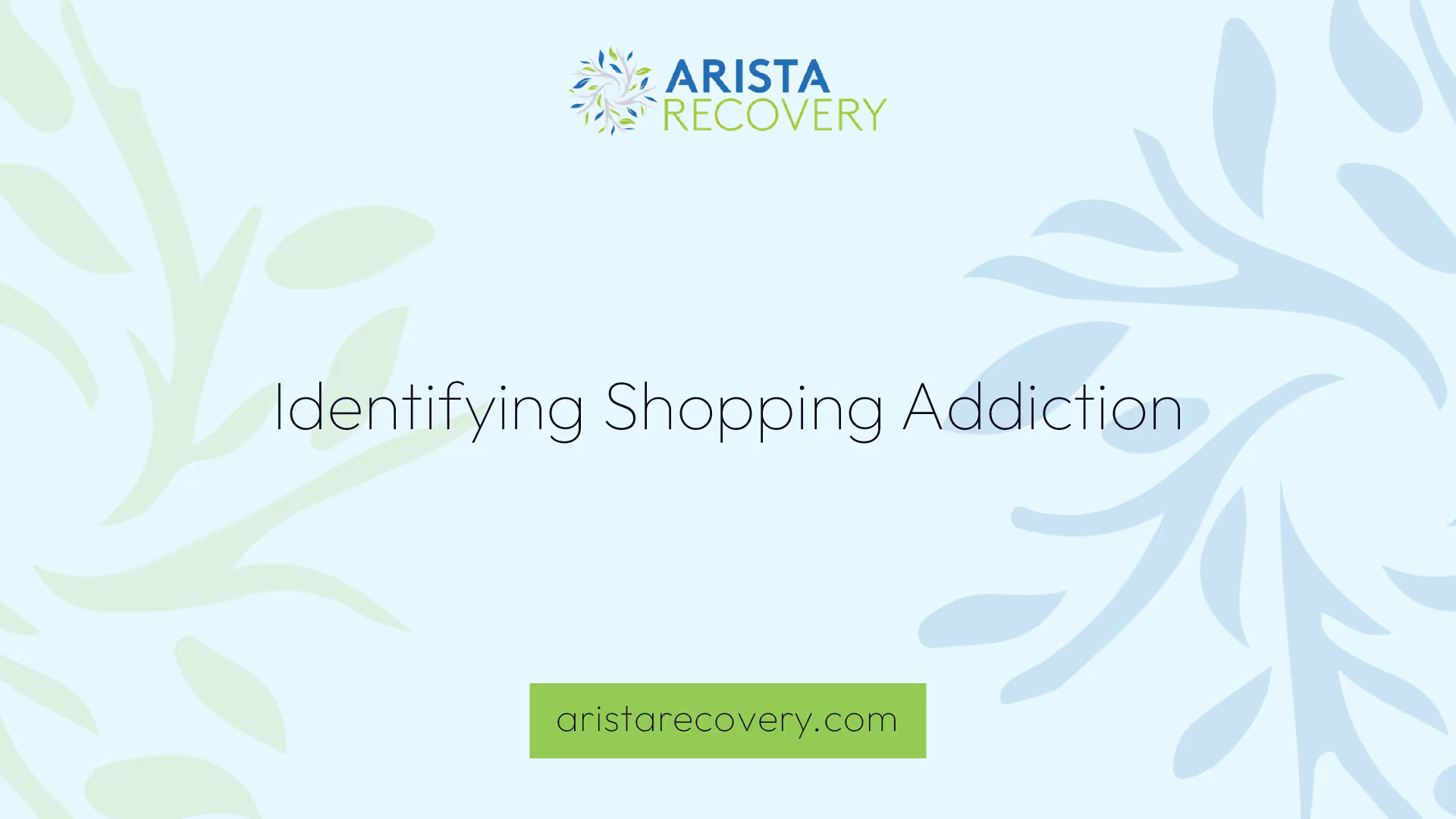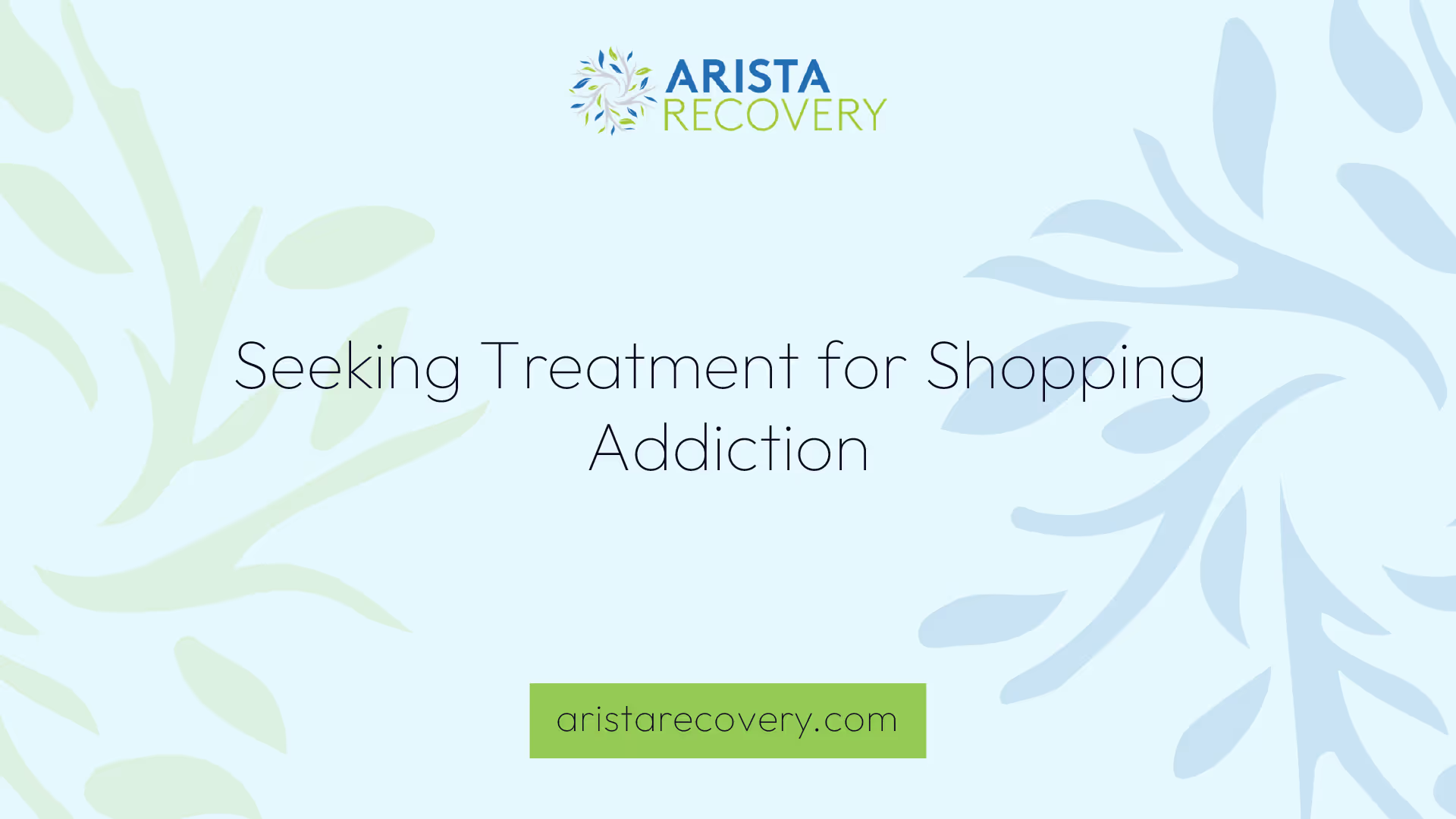Is it Possible to be Addicted to Spending Money?


Understanding Addiction and Financial Impact
Addiction is a multifaceted condition that can manifest in various forms, one of which is an irresistible urge to spend money. This form of addiction, often overlooked, can have significant financial implications.
Shopping Addiction Explained
Shopping addiction, also known as compulsive shopping disorder, is a behavioral addiction that involves compulsive buying as a way to feel good and avoid negative feelings, such as anxiety and depression. It's a chronic disorder where individuals have little control over their shopping behavior, often preoccupied with thoughts about shopping and spending money.
This irresistible urge to shop and spend, also referred to as oniomania or compulsive buying (CB), is characterized by an uncontrollable need to shop and spend, either for oneself or others. This behavior can stem from the desire to cope with negative emotions such as sadness, boredom, stress, and anxiety, leading to a temporary mood boost through shopping.
The prevalence of compulsive buying was estimated at 4.9% in a representative adult sample, with female and young individuals being more prone to develop CB. This underscores the fact that it is indeed possible to be addicted to spending money, and it's a reality many people face.
Financial Consequences of Shopping Addiction
The financial consequences of shopping addiction can be severe and far-reaching. The compulsion to spend often leads to spending beyond one's means, resulting in accumulated debt, empty bank accounts, and even bankruptcy. The strain of financial stress can further exacerbate the addiction, creating a vicious cycle that's hard to break.
Moreover, the financial fallout of shopping addiction extends beyond the individual. It can affect families, as household funds may be depleted, and financial stability is jeopardized. This can lead to tension and conflict within the family unit. Additionally, it can have societal implications, as individuals struggling with shopping addiction may become reliant on social resources for support.
Understanding the financial impact of shopping addiction is crucial in recognizing the severity of the issue. It's not merely about the thrill of purchasing; it's a complex disorder with real consequences. For more detailed information on how addiction affects finances, visit how does addiction affect finances.
The road to recovery from shopping addiction starts with understanding its root causes, recognizing its signs and symptoms, and seeking professional help. Explore our resources to learn more about what causes money addiction? and how to financially recover after addiction.
Behavioral Aspects of Shopping Addiction
Within the realm of behavioral addiction, shopping addiction is a unique manifestation that can lead to significant financial and personal consequences. To comprehend this addiction, it's important to understand the emotional triggers and psychological effects associated with compulsive buying.
Emotional Triggers for Compulsive Buying
Shopping addiction, also known as compulsive shopping disorder, involves a loss of control over spending urges. Emotional triggers play a significant role in fueling these urges. Compulsive shoppers often use shopping as a way to escape negative feelings such as depression, anxiety, boredom, and anger, as well as self-critical thoughts [1].
These individuals may experience feelings of excitement or pleasure while shopping, which temporarily relieves stress, anxiety, or boredom, further fueling the addiction. This emotional satisfaction derived from purchases often acts as a reward, encouraging repetitive buying behavior. The emotional triggers of compulsive buying are complex, often linked to underlying psychological conditions or life stressors. For a detailed discussion on the causes of money addiction, you can visit our page on what causes money addiction?.
Psychological Effects of Shopping Addiction
The psychological effects of shopping addiction are significant and can be detrimental to an individual's mental health. Spending money can stimulate the brain's reward system, leading to potential addiction. This stimulation can cause massive surges of dopamine through the brain, creating an unhealthy drive to seek more pleasure from these activities and less from healthier ones.
This addiction can lead to the release of endorphins and dopamine in the brain, causing compulsive shopping due to the instant reward and pleasure derived from purchases [3]. These feelings of immediate satisfaction can overshadow the long-term consequences of excessive spending, leading to significant financial issues. For more on this, visit our page on financial consequences of addiction.
Unfortunately, the relief provided by shopping is often short-lived. Once the temporary high wears off, individuals may experience feelings of guilt, shame, or regret, leading to increased negative emotions and potentially perpetuating a vicious cycle of spending to escape these feelings.
Understanding the behavioral aspects of shopping addiction is crucial in addressing the question, 'is it possible to be addicted to spending money?'. By recognizing emotional triggers and understanding the psychological effects, individuals and their loved ones can take the first steps towards seeking appropriate help and treatment.

Identifying Shopping Addiction
Recognizing that a problem exists is the first and most crucial step in addressing the question, "is it possible to be addicted to spending money?" The answer is yes, it is possible, and it's a serious issue that affects many individuals. Let's delve into the signs, symptoms, and potential co-occurring disorders associated with shopping addiction.
Signs and Symptoms
People with a shopping addiction, also known as compulsive buying disorder, exhibit specific signs and symptoms. These are often closely tied to their shopping behaviors and the emotions associated with them. Compulsive shoppers use shopping as a way of escaping negative feelings, such as depression, anxiety, boredom, and anger, as well as self-critical thoughts. However, this escape is short-lived [1].
Furthermore, individuals with shopping addiction tend to be more materialistic than other shoppers and often seek status through material objects and approval from others. They may also engage in fantasy and have difficulty controlling the desire to shop.
Here are a few signs to watch out for:
- Frequent buying of items that are not needed or used.
- Experiencing a rush of euphoria and anxiety when shopping.
- Feeling guilty or embarrassed after shopping.
- Spending more than one can afford, leading to financial consequences of addiction.
Co-occurring Disorders
Shopping addiction often co-occurs with other disorders. These may include mood and anxiety disorders, substance use disorders, eating disorders, other impulse control disorders, and personality disorders. Having these co-occurring disorders can complicate the treatment process and may require a more comprehensive treatment approach.
The presence of co-occurring disorders is also a significant sign that professional help is needed. It's crucial to seek treatment as early as possible to prevent further financial and personal damage. If you or a loved one are struggling with shopping addiction and its financial problems, consider exploring resources on how to financially recover after addiction.
By understanding the signs, symptoms, and potential co-occurring disorders, you or a loved one can begin the journey towards overcoming shopping addiction and regaining control over financial health and well-being.
Impact on Personal and Social Life
Shopping addiction, or the compulsion to spend money, is not just a financial problem. It can have severe repercussions on a person's personal and social life, including strained relationships and neglected responsibilities.
Relationship Strain
People who are addicted to spending money can often prioritize shopping over their relationships. As a result, their personal relationships with family, friends, and partners can become strained. They may also face criticism or misunderstanding from their loved ones regarding their shopping behaviors, leading to conflicts and isolation.
Additionally, people with shopping addiction often experience financial difficulties, such as being in debt or unable to pay bills due to their excessive spending. These financial problems can further exacerbate relationship tensions, especially if the person shares financial responsibilities with others. For more information on the relationship between addiction and financial problems, check out our dedicated article.
Work and Social Obligations
Shopping addiction can also impact a person's ability to fulfill their work and social obligations. According to the Addiction Center, individuals with a shopping addiction often neglect essential responsibilities like work, school, or family obligations, as they prioritize shopping over other important tasks. This neglect can result in missed deadlines, poor job performance, and strained relationships with co-workers or classmates.
Moreover, people with a shopping addiction may spend a significant amount of time thinking about shopping, planning shopping trips, or engaging in shopping activities, leaving less time for social interactions and hobbies. This can lead to social isolation and a narrowed scope of interests, further exacerbating the addictive behavior.
In conclusion, while the negative financial consequences of shopping addiction are evident, it's important to also consider the significant impact it can have on personal and social life. Recognizing these effects is an important step towards seeking help and overcoming addiction. If you or someone you know is struggling with shopping addiction, consider exploring our articles on what causes money addiction? and how to financially recover after addiction.

Seeking Treatment for Shopping Addiction
If you or a loved one is grappling with the question, "is it possible to be addicted to spending money?" it's important to know that help is available. This section delves into therapy options and other resources that can be instrumental in overcoming shopping addiction.
Therapy Options
One effective treatment option for shopping addiction is therapy, such as Cognitive Behavioral Therapy (CBT). CBT can help identify shopping as a coping mechanism and work towards developing healthier skills. Therapeutic programs are designed to help individuals understand the underlying reasons and triggers for their shopping habits, learn coping strategies, and lead an addiction-free life.
Additionally, the use of selective serotonin reuptake inhibitors (SSRIs) may also be beneficial. However, more research is needed to determine the most effective therapy types. It's crucial to seek professional help in order to tailor a treatment plan that caters to the individual's unique needs and circumstances.
Financial Counseling and Support Groups
When dealing with a shopping addiction, it's not only the psychological aspect that needs to be addressed. The financial consequences of addiction can be severe and long-lasting. As such, financial counseling is a vital part of the recovery process.
Financial counselors can provide guidance on budgeting, debt management, and other financial strategies to help individuals regain control over their spending habits. They can also provide resources and tools to prevent relapses and ensure a sustainable recovery [2].
Support groups also offer a platform for individuals to share their experiences and learn from others who have faced similar struggles. These gatherings can be a source of comfort and encouragement, reinforcing the belief that recovery is indeed achievable.
Remember, recognizing the problem is the first step towards recovery. If you're struggling with a shopping addiction, don't hesitate to reach out for help. There are numerous resources available to aid in your journey towards a healthier, addiction-free life. For more information on the financial recovery process after overcoming addiction, visit our article on how to financially recover after addiction.
Overcoming Shopping Addiction
Upon recognizing the reality of shopping addiction and its implications, the question arises - is it possible to be addicted to spending money and find a way out? Overcoming shopping addiction involves developing effective coping strategies and setting long-term recovery goals.
Coping Strategies
One of the first steps to overcome shopping addiction is to understand its root cause. Shopping can be a way for individuals to cope with difficult emotions, feelings, or memories, providing a temporary distraction from life's challenges. However, this unhealthy coping mechanism does not effectively address the underlying pain or distress, potentially worsening the situation in the long term [3].
Therapeutic programs are available to help individuals understand the underlying reasons and triggers for their shopping habits. Cognitive behavioral therapy (CBT) can help identify shopping as a coping mechanism and develop healthier skills, such as effective stress management techniques, mindful spending habits, and improved self-esteem. Some individuals may also benefit from selective serotonin reuptake inhibitors (SSRIs), although more research is needed to determine the most effective therapy types [7].
Long-Term Recovery Goals
Overcoming shopping addiction is not just about immediate change; it's about setting and working towards long-term recovery goals. These might include setting a realistic budget, learning to distinguish between wants and needs, and finding healthy ways to cope with stress and other triggers that may lead to compulsive shopping.
In addition, it's crucial to seek support from friends, family, or support groups who can provide encouragement, understanding, and accountability during the recovery process. For more information on how to financially recover after addiction, visit our article on how to financially recover after addiction.
Living an addiction-free life is possible, but it requires commitment, hard work, and a lot of support. Recognizing the problem and seeking help are the first steps toward overcoming shopping addiction and reclaiming control over one's financial health and wellbeing. For more information about the relationship between addiction and financial problems, visit our articles on addiction and financial problems, why does addiction lead to poverty? and how does addiction affect finances.
References
[1]: https://www.verywellmind.com/shopping-addiction-4157288
[2]: https://www.addictionhelp.com/shopping-addiction/
[3]: https://www.priorygroup.com/blog/compulsive-shopping-and-spending-a-sign-of-shopping-addiction
[4]: https://www.ncbi.nlm.nih.gov/pmc/articles/PMC7186342/
[5]: https://www.addictioncenter.com/community/signs-of-shopping-addiction/
[6]: https://my.clevelandclinic.org/health/diseases/6407-addiction
[7]: https://www.verywellmind.com/what-is-compulsive-shopping-disorder-2510592
You’re not alone in this.
When mental health challenges and addiction intersect, it can feel isolating. At Arista, we offer compassionate, evidence-based, and trauma-informed care to help you heal, grow, and move forward.
You’re not alone in this.
When mental health challenges and addiction intersect, it can feel isolating. At Arista, we offer compassionate, evidence-based, and trauma-informed care to help you heal, grow, and move forward.
Support that moves with you.
You’ve taken a brave first step. At Arista Recovery, we’re here to help you continue with best-in-class care designed for long-term healing and support.
.webp)






